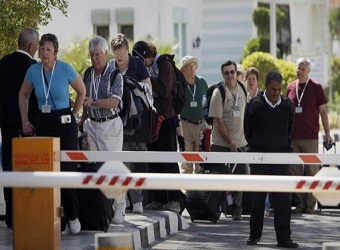Tunisia and Egypt show signs of improvement with respect to their tourism industry. However, the governments need to be patient about recovery of the industry in the region. Experts anticipate that the vibrant tourist culture of these locations will be back once the effects of the Arab Spring settle.
Alexandre Adler, a French journalist and historian who has made his specialization in international relations, pointed out at the recent Selectour Afat Congress, that Tunisia is still experiencing some volatility. The situation is gradually getting better, although there are some locations where foreign tourists are “no longer welcome.” There is the risk that Islamic supporters will try to delay the onset of free elections in the countries in the region. But Adler asserted that these countries will slowly begin to adopt these changes.
It is expected that Tunisia will enter a secondary phase, whereby the different secular parties in the country will advocate for modernization of the local society. These forces will push for the equality of men and women there. They may even advocate for the adoption of European education and cultural style. In turn, this will make the country more open to tourism over time.
It does seem that this may take a while. Though there are many voices wanting tourism to increase in Tunisia again, there are some blockades in the way. Secularism may take a while to take hold and it may need to be bolstered by appeasing local supporters of Islam.
With Egypt, the situation is somewhat worse, said Adler. Experts seem to think that though there may not seem to be a current civil war, there may very well be one ongoing right now. There were over 10 million people who opted to protest against the current Islamic regimes in the area. However, these forces were voted in with almost 60% of their Salafist allies during the first free elections held there.
Some are wondering if the defeat of the Muslim Brotherhood of Egypt will provide the tourism industry with a change to grow again. But Adler asserts that this won’t do much to help local tourism. Since the political situation will remain unstable in the area, mass tourism is still far from coming back to the country. There may be sporadic tourism in Luxor or Cairo, but it won’t be on the levels seen in the past.
Some experts noted that some countries may benefit from these kinds of changes. Morocco may continue to grow as an alternative tourist destination in the area. Since Algeria has put an end to its Bouteflika leadership, it could also undergo a surprising growth in tourism. This could change the way that tourism to the region is managed for decades to come.
Source: eTurboNews
